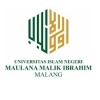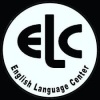PROMOTING AUTONOMOUS LEARNING THROUGH ONLINE DISCUSSION
Abstract
An autonomous learning system is being applied to students nowadays. Students are now encouraged and expected to play a more active role in learning. Autonomy learning is intensified to encourage students to be more independent, creative, and responsible for their learning. Through this article, writers explain how to promote autonomous learning. The method used is the library study related to autonomous learning. Writers explain further about the class design to promote autonomous learning and the strengths also weaknesses of this learning system. Based on this article's findings, possible ways are proposed to help and improve the implementation of autonomous learning.
Full Text:
PDFReferences
Atieno, L. (2019). Education: What is Your Role as a Students? Publish 30 October 2019, from https://www.newtimes.co.rw/lifestyle/education-what-your-role-student
Cotterall, S. (2000). Promoting learner autonomy through the curriculum: Principles for designing language courses. ELT Journal. Publish April 2000.
ELT, O. (2013). Learner Autonomy - Oxford University Press. Retrieved 17 August 2020, from https://oupeltglobalblog.com/2013/01/29/learner-autonomy/
Howard, J. and Major, J. (2004). Guidelines for Designing Effective English Language Teaching Materials. Article January 2004: 104.
Kumaravadivelu. (2006). Understanding language teaching: From method to postmethod Mahwah, NJ: Lawrence Erlbaum Associates.
Little, D. (1991). Learner autonomy: definitions, issues, and problems. Dublin: Authentic.
Nur Rokhani, E. Promoting Autonomous Language Learning to Higher Education Students. Retrieved 17 August 2020, from https://media.neliti.com/media/publications/220131-promoting-autonomous-language-learning-t.pdf
Richards, Jack C. (2020). Autonomous Learner. Textus: The Official Website of Educator & Arts Patron Jack C. Richards. https://www.professorjackrichards.com/autonomous-learner/
Rusman. (2011). Model-model pembelajaran. Jakarta: Rajawali Pers/PT Raja Grafindo Persada.
DOI: https://doi.org/10.18860/jeasp.v5i1.16582
Refbacks
- There are currently no refbacks.

This work is licensed under a Creative Commons Attribution-ShareAlike 4.0 International License.







Editorial Office:
Pusat Pengembangan Bahasa
Program Khusus Pengembangan Bahasa Inggris (PKPBI)
Universitas Islam Negeri Maulana Malik Ibrahim Malang
Gedung C lantai 1
Jl. Gajayana No 50 Kota Malang, Jawa Timur, Indonesia
Kode Pos 65144, Telp/Fax : (0341) 570872
Email: jeasp@uin-malang.ac.id
JEASP : Journal of English for Academic and Specific Purposes is licensed under a Creative Commons Attribution-ShareAlike 4.0 International











